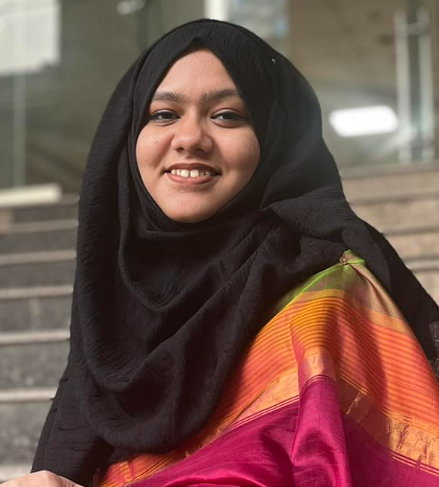Nazia Shehnaz Joynab
🎓 B.Sc. in Computer Science and Engineering from MIST
📜 1 Q2 journal published in Informatics in Medicine Unlocked (link).
👩💻 Two years of professional experience as a Software Engineer @SCM_DPI Team, Samsung Electronics.
🔨 Currently working on a novel agentic AI architecture for Software Engineering tasks
📭 You can reach me out here.
Hey there! I'm Nazia. Pleased to meet you!
With nearly two years of professional
experience as a Software Engineer at Samsung R&D Institute Bangladesh, I have mostly worked on large-scale distributed
systems. I obtained my BSc.(Engg.) degree in May 2023 from the department of Computer Science and Engineering (CSE) at
Military Institute of Science and Technology (MIST).
My research interest lies in the intersection of AI and Software Engineering with a particular emphasis on
information retrieval and reinforcement learning. I am currently developing a novel agentic AI architecture
for root-cause analysis (RCA) and automated program repair (APR) tasks to recall past incidents and resolutions to
suggest fixes for both recurring and novel bugs in complex software systems.
Besides this, I am also exploring the application of AI in Healthcare domain. My undergraduate thesis focuses
on highlighting potential challenges of classifying heterogenous cancerous cells using federated learning, by
experimenting in both IID and non-IID settings, under the supervision of Dr. Muhammad Nazrul Islam (MIST). The findings of this research were subsequently
published in Informatics in Medicine Unlocked (link).
At Samsung, I was involved in the development and maintenance of an internal Content Delivery Network (CDN), named
Artifact Deployment System (ADS). It is a distributed caching system designed to facilitate the rapid and
efficient transmission of large binary artifacts across different global research centers of Samsung. The
architectural framework of our system integrates proprietary network accelerators, smart caching mechanisms, proxy
configurations, and a public cloud infrastructure to optimize artifact delivery for Samsung's employees and
strategic partners.
In my free time, I love to travel to new places. I am a sea-person, so mostly it is the beaches that attract me. I
also enjoy singing in my plain voice, even if I am off-key and the lyrics aren't right 😿.
If you require any further information, or want to collaborate on a project, send me an email here.
Research Interests
AI4SE, AI4Health, Machine Learning Systems

Recent News
Research
* indicates equal contribution